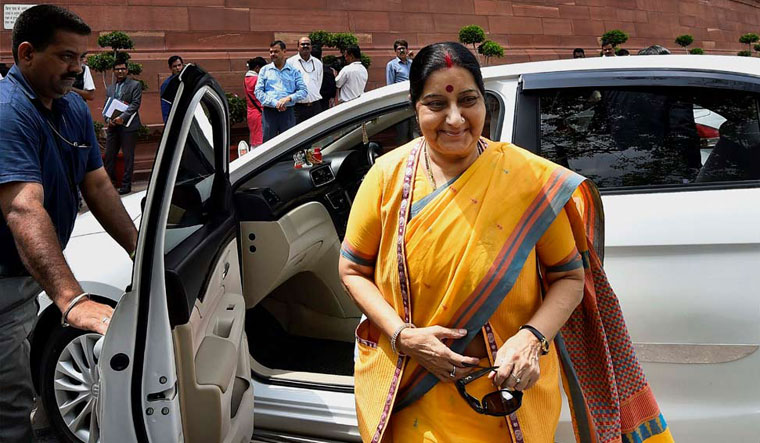If Sunday, is anything to go by, it will be a long and violent summer in Afghanistan. There was a blast in a mosque in Khost killing 14 people and near Kabul, seven Indian engineers working with KEC International in Baghlan province were abducted.
The engineers were undertalking repair works at a power substation near Pul-e Khomri, capital of Baghlan province. They were travelling in an unmarked car—possibly believed to be safer as they wouldn't be immediately indentified—driven by an Afghan driver. The driver too is reportedly missing.
Though no group has taken responsibility, TOLO TV in Afghanistan has quoted the Baghlan Governor alleging that a Taliban group had hand in the kidnapping.
“We are aware of the abduction of Indian nationals from Baghlan province in Afghanistan. We are in contact with the Afghan authorities and further details are being ascertained,'' a statement by the ministry of external affairs read.
The next few days will be critical since negotiations, in hostage situation, by nature is delicate. In 2016, Judith D'Souza, an aid worker, was kidnapped and after careful negotiations, she returned home safely. Similar was the case with Father Alexis Prem Kumar, who was abducted in 2014 from Herat, and a year later, he returned home safely.
The present government at the Centre has the best success rate in getting Indian nationals back home.
Going beyond Afghanistan, the Modi government had managed to bring home Indians abducted from across the globe. Sailors have been rescued from Somalian pirates, Father Tom Uzhunnalil and Sister Sally were freed from Yemen. External affairs minister, Sushma Swaraj, earned her stripes—and her reputation—when 46 nurses working in a hospital in Tikrit were brought home safely. They had been in captivity for 23 days.
The security situation in Afghanistan is unraveling and rather quickly. The unconditional peace offer made to the Taliban has been rejected. Instead, the Taliban have announced their spring offensive to force the foreign troops out of Afghanistan. This will translate into more violence and more attacks and more civilian targets. The terrorist group chose to turn to “softer targets'' in 2017 in an attempt to achieve media attention. The country has witnessed an upsurge of 14 per cent of terrorist attacks last year. With the upcoming elections—which Afghanistan is determined to see through and Taliban determined to disrupt—things are not likely to change for the better. Indians, often, find themselves caught in the midst of this rather volatile situation.
“The primary objective of the government, as indeed of all Indians, should be the safe return of those abducted,'' says former ambassador to Afghanistan Vivek Katju. “Nothing should impede that.''
This is not the first incident of Indians being abducted from Afghanistan. Indians—have been targetted—for political reasons by the Taliban. In 2005, Maniappan Raman Kutty, an engineer with Border Roads Organisation was kidnapped and beheaded. A year later, a telecommunication engineer Kasula Suryanarayana was abducted and killed too.
During Katju's tenure, there was only one kidnapping incident. In 2003, Pemmasani Murali and Gonem Varadaiah—two construction workers—were abducted and later freed. The two had been working on the Kabul-Kandahar highway and was picked up from Zabul. The Afghan government had at that time managed to negotiate with the Taliban to ensure that the two workers came home. So, hopefully, this too shall have a happy ending.


